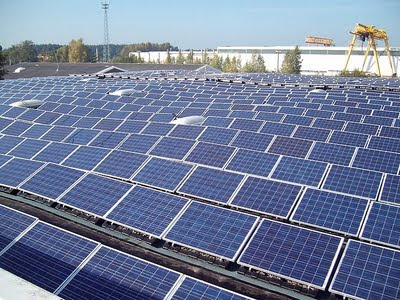Canadian Solar Inc. (NASDAQ: CSIQ) is scheduled to release its fourth-quarter financial results before the market open on Thursday, March 10, 2011. Analysts, on average, expect the company to report earnings of 65 cents per share on revenue of $417.56 million. In the year ago quarter, the company reported earnings of 35 cents per share on revenue of $287.00 million.
Canadian Solar Inc., together with its subsidiaries, engages in the design, development, manufacture, and marketing of solar cell and solar module products that convert sunlight into electricity for various uses in Canada and internationally. Its products include a range of standard solar modules for use in various residential, commercial, and industrial solar power generation systems. The company has seven manufacturing facilities located at Suzhou, Changshu and Luoyang in China. It is also constructing a module plant in Ontario, Canada. The company operates in 7 countries: Canada, China, Germany, Italy, Japan, Korea, and the United States.
In the preceding third quarter, the Ontario, Canada-based company'net income was $20.3 million, or 47 cents per share, from $25.3 million, or 69 cents per share, in the same quarter last year. Revenue jumped 77% to $377.2 million from $213.1. Analysts, on average, expected the company to report earnings of 43 cents per share on revenue of $347.47 million.
At it last earnings call in November, the company said that it expects gross margin to improve in the upcoming quarters as third party product purchases decline. For the fourth quarter, gross margin is expected at 17% to 18%, compared to 17.3% recorded in the third quarter.
Early January, Canadian Solar announced it will supply modules to Europe's largest capacity PV solar power plant, estimated to generate energy to power more than 16,500 homes and curb carbon emissions by more than 40,000 tons. Last month, the company entered into a sales contract with S.A.G. Solarstrom AG, based in Freiburg, Germany. Under terms of the contract, shipments will start in March, with Canadian Solar expected to supply 60 MW of PV modules to S.A.G. Solarstrom AG in 2011 for deployment in Germany and Italy, both key solar markets.
The company is likely to benefit from a geographically-diversified customer base, ongoing expansion programs, improving operating efficiencies, rising gross margins, material cost savings through its vertically-integrated production structure, higher captive generation of solar cells and higher conversion efficiency.
2010 continued the significant growth of the solar market with new markets in China and the USA advancing their demand for solar panels. Solar industry as a whole has benefited from continued strong demand thanks to growing awareness about global warming, skyrocketing oil prices, cheap financing and technological advances. Companies involved in the production of semiconductors used in solar panels have enjoyed a positive quarter. Many have experienced rising shipments over the last few quarters, resulting in a sequence of record quarters. The world is becoming increasingly environmentally conscious. Both commercial and private demand for solar power is rising. Solar options are becoming more attractive as more governments provide better options for buildings producing solar power to feed into and out of the grid as required.
In January, US President Barack Obama in his State of the Union address called for 80 percent of the nation's electricity to come from clean sources by 2035. Meanwhile, Senator Bernie Sanders submitted a bill to congress titled the "10 Million Solar Roofs and 10 million Gallons of Solar Hot Water Act". This bill is expected to spur alternative energy growth and create green jobs.
Thanks to better cost advantages, Chinese solar module maker have grabbed more market share from their international competitors. Local solar companies have also benefited from China's well-developed supply chain, cheap electricity, supportive policies and even low environmental standards. More than 90 percent of domestic Chinese manufacturers sell their products overseas currently, especially in Europe, where the solar electricity industry is more mature.
Full Disclosure: None.
